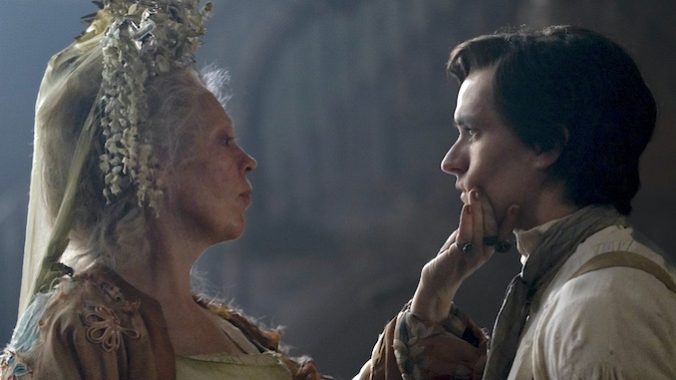FX’s Great Expectations Is a Dreary and Hollow Adaptation That Favors Edge Over Faithfulness
Photo Courtesy of FX
With Dickens adaptations always comes great expectations. Those expectations are not unfounded—one of the most popular writers of the Victorian era, Charles Dickens is responsible for a number of culture-defining stories, each with their own attempts at being brought to both the big and small screens. This time, FX and BBC have taken their swing at Dickens’ 1861 coming of age novel Great Expectations (which will stream on Hulu), and sadly, this series simply cannot live up to the, well, expectations*.
(*For any and all annoyed by my frequent use of “expectations” in this opening paragraph alone, be prepared for Episode 2 of this series, which could inspire a game of “Take a shot every time someone says ‘expectations’” —but only if you wish to die of alcohol poisoning.)
FX’s Great Expectations, created by Peaky Blinders’ Steven Knight, follows Pip (Fionn Whitehead) as he attempts to become a gentleman and move far away from the impoverished life he leads as an orphan in the care of his sister. On the whims of an eccentric and cruel Miss Havisham (Olivia Colman), he is swept into the world of polite society in exchange for spending time with her adopted daughter Estella (Shalom Brune-Franklin). As Pip shoulders the weight of the expectations placed upon him, becoming entrenched in the seedy world of London’s infamous lawyer Jaggers (Ashley Thomas), he wonders if becoming a gentleman is truly worth the price he will have to pay to get there.
This limited series, composed of six episodes (of which I soldiered through five), is Great Expectations, but only in theory. The central players are there, and the story feels vaguely familiar, but so many changes were made when bringing this series to the small screen that it is nigh unrecognizable. Pip is vaguely the same, but the series opts to skim over much of his youth (a portion of the story that takes up 20 chapters of the original novel) in favor of focusing on his life as a young adult much swifter than was necessary. Unfortunately, the lack of centering of Pip’s youth leaves him much less endearing to the audience, especially in the later episodes. His desire for status and wealth is the sole focus of his time as a young boy, and especially his relationship with Estella. The heartless nature of this series is a running theme, with both Jaggers and Miss Havisham also suffering the same fate; these two characters become evil in a laughably cartoonish sense, only elevated from that state through outstanding performances by Thomas and Colman.
The heartlessness of FX’s attempt at this story not only affects the characters, but the general storytelling of the series as well. In every single way, it’s entirely too edgy for its own good. Bolstered by frequent drug montages, brothel and bar visits, and a dreary tone that sucks any sense of levity from each scene, even Mrs. Joe (given the first name of Sara in this adaptation, played by Hayley Squires) dodges her fate as an invalid to instead become a sort of BDSM mistress to Matt Berry’s Mr. Pumblechook. This series is Dickens, sure, but by way of Euphoria, and worst of all, seemingly for no reason.
-

-

-

-

-

-

-

-

-

-

-

-

-

-

-

-

-

-

-

-

-

-

-

-

-

-

-

-

-

-

-

-

-

-

-

-

-

-

-

-








































